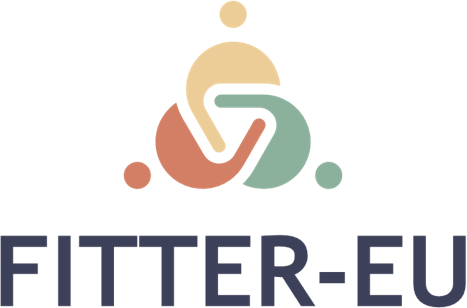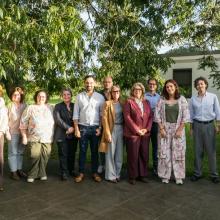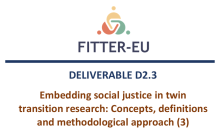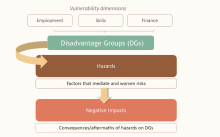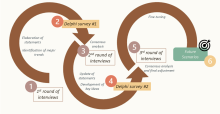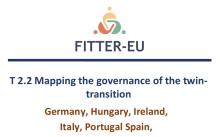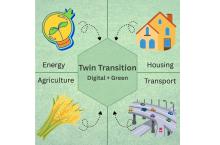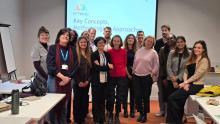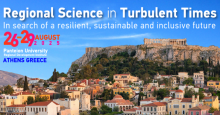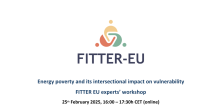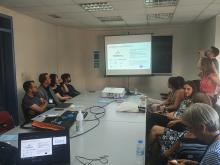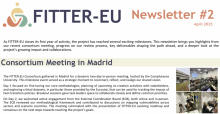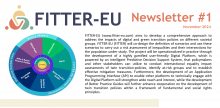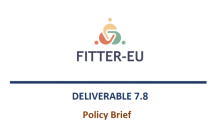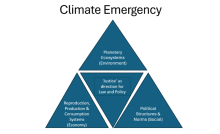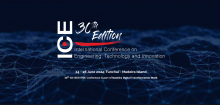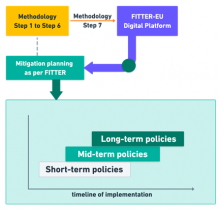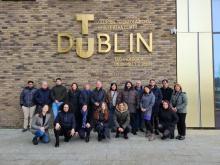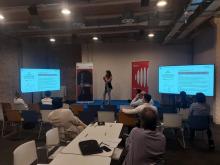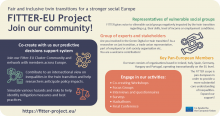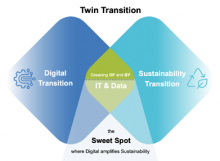The FITTER-EU project
It aims to address inequalities and promote a fair twin transition in Europe through innovative methods.
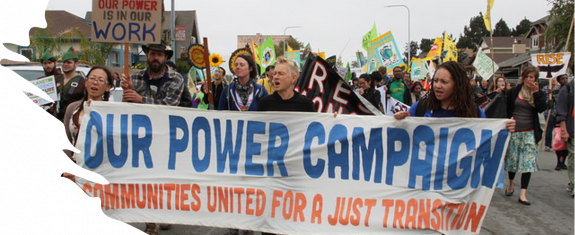
There is clear evidence of the differentiated impacts of digital and green transitions on various groups within society. However, there is a significant lack of intersectional equality impact assessments, which are essential for early identification, aversion, and mitigation of potential inequalities that could be exacerbated or newly created by these transitions. FITTER-EU addresses this gap by contributing to research on the origins, dynamics, and determinants of inequalities, and by supporting anticipatory governance to ensure a fair and inclusive twin transition in Europe.
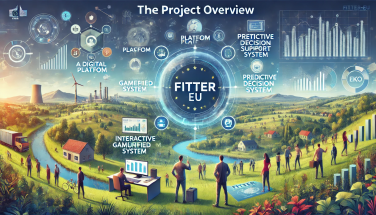
FITTER-EU (FITTER) aims to develop a comprehensive approach to address the impacts of digital and green transition policies on different societal groups. By creating a highly interactive and gamified Digital Platform, powered by an Intelligent Predictive Decision Support System, FITTER will aid policymakers in identifying at-risk groups and proposing effective mitigation measures.
The project will deliver:
- A definition of just transition and a checklist incorporating the requisites for a just transition governance system and dynamics.
- The establishment of a twin transition baseline with probable future scenarios, including associated vulnerabilities and impacts under each scenario.
- The launch of the FITTER ecosystem with a toolbox for predicting which groups may be at risk and proposing mitigation measures to support policy decisions.
- An exploitation plan developed with Cluster Community Group (CCGS) and business angels to ensure the sustainability of the FITTER ecosystem.
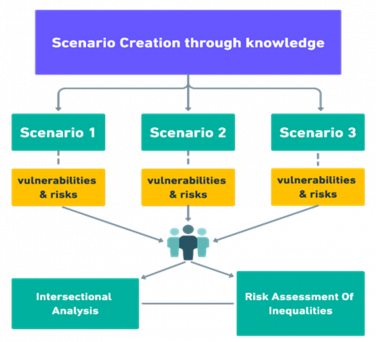
FITTER will utilize scenario mapping as a pivotal foundation for intersectional equality impact assessment procedures and tools. This involves:
- Creating scenarios to understand vulnerabilities and risks.
- Conducting intersectional analysis to identify at-risk social groups.
- Providing risk assessments of inequalities.
- Offering policymakers predictive tools and better practice guides to mitigate potential negative effects on identified at-risk groups.
This integrated multi-level, multi-sectoral, and multi-actor approach will enable effective anticipation and mitigation of inequalities during the digital and green transitions.
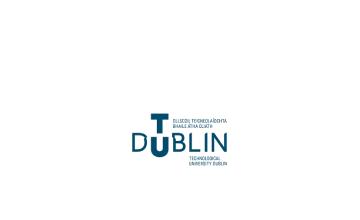
TU Dublin was established in January 2019, with the merging of three former Institutes of Technology in Dublin city. A leader in STEM disciplines, TU Dublin’s distinguished researchers and innovators are pioneers in science and technology discovery; play active roles in informing policy and standards; and contribute to the creative life of Ireland. The university’s award-winning technology transfer and business incubation activity have delivered over 400 new sustainable businesses with an economic value of almost €700 million. With an international outlook, TU Dublin welcomes students and staff from around the world while its strong international partnerships provide opportunities for student and staff exchange programmes, major cross-collaboration research projects, and employment opportunities.

Székely Family & Co. Nonprofit Ltd. is a fully privately-owned company working as a startup studio, actively present at the forefront of European research and innovation with the Horizon Europe programme. We are dedicated to bringing innovations to the market focusing on the space, the security and the sustainability industries. Besides, our company has strong IT skills in visualization from VR development to satellite image processing. In addition to reliable coordination, management and business development expertise, SFC also has technical capabilities used in projects, namely: creating datasets, performing landscape mapping (data collection, data cleaning, structuring, creating datasets in different data formats), game and visualisation tool development in VR, deployment of various AI algorithms for decision support, data analysis and conversational assistance, deployment and use of online community platforms, performing risk and quality management and ISO9001 and ISO41001 audits.The team is also experienced as Dissemination Officer, Quality Manager, Data Protection Officer, Project Security Officer, WP and task leader; also has certified Scrum Masters / Scrum Product Owners.
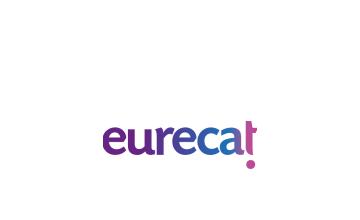
Eurecat is the main Research & Technology Organisation in Catalonia and the second largest private research organization in southern Europe. It brings together the experience of more than 750 professionals who generate an annual turnover of 62 million euros and provides services to more than 2,000 companies. Eurecat integrates advanced digital capabilities and experience in biotechnology, industry and sustainability and collaborates with industry in R+D+I activities and projects, offering advanced scientific and technological services and specialized knowledge to respond effectively to the technological needs of very different business sectors, accelerating innovation, reducing both risks and spendings on scientific and technological infrastructures. The technology center participates in more than 200 large national and international consortium projects of high strategic R&I, has 200 patents and 10 spin-offs.

UNINOVA is a research institute working closely to industry to ensure proper technology transfer to business. UNINOVA comprises various centres of excellence, including the Centre of Technology and Systems (CTS). UNINOVA-CTS is responsible for the dissemination, communication, and exploitation of the FITTER Project.
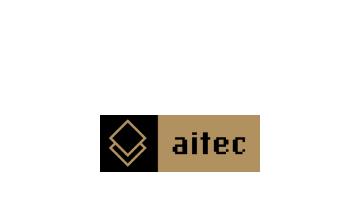
AITEC is a Spanish SME providing technology oriented to research and innovation through AI based solutions. AITEC is the WP5 leader in FITTER with the aim at making actionable all the knowledge acquired in the project through a highly interactive and comprehensive FITTER Digital Platform.

TFC Research and Innovation Limited is an SME engaged scientific research organisation, based in Dublin and significantly involved in European research and projects across multiple domains including Operational Security, Energy Efficiency, eHealth and the Digital and Green Transition.
In FITTER-EU, the company (TFC) operates across each work package and supports Project Coordination, Clustering, Better Practice Guide development and Outreach amongst other tasks.
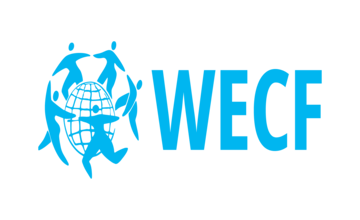
Women Engage for Common Future (WECF) is a non-profit international network committed to a gender-just and healthy planet for all. As an ecofeminist organisation, WECF pursues a comprehensive approach to sustainable development, climate action, energy transition and a toxic-free environment, with a focus on diversity and equality. WECF is involved in the development of the FITTER methodological approach and the mapping of vulnerabilities as well as responsible for the German case study.
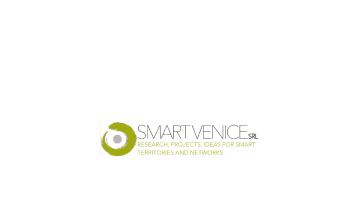
Smart Venice is an independent consultancy, research and capacity building unit specialized in supporting participatory change processes for more gender equal, inclusive and sustainable societies, organizations and cities. As part of FITTER-EU, Smart Venice is responsible for designing the stakeholder engagement action plans and coordinating the co-creation activities of the FITTER labs.
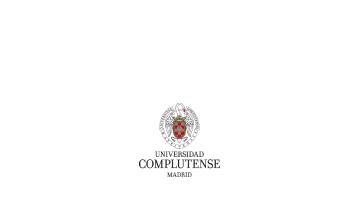
Founded in 1499, Complutense University of Madrid it is the largest university in Spain, hosting over 85.000 students. UCM encompasses 26 Schools spanning various disciplines, 40 research institutes, 18 specialized research centers, and 14 clinics and hospitals, providing a fertile environment for 575 research groups. UCM’s main contribution to the project is related to the mapping of vulnerabilities under the national baseline scenarios.
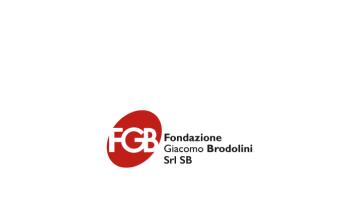
FGB is an Italian independent research centre inspired by the principles of labour and social inclusion, gender equality, cultural diversity and respect for fundamental human rights, welfare promotion, territorial cohesion attention to the environment and participation for local development.
The main purpose of FGB is the creation of social impact through the promotion of study and research, the design and evaluation of public policies, the planning of actions, as well as education and cultural production, which have an impact on the territories, organisations, and people who form the community in which the company grows and operates at national and international level.
FGB operates at all levels – from local to European producing and disseminating research and evaluation knowledge to meet the present and future economic and social needs and to overcome inequalities. Knowledge, we believe, is the cornerstone to progress. Change, we believe, can only happen when you have a deep understanding, the passion to apply it, and the drive to improve people’s lives.
As a partner in FITTER-EU, FGB conducts the research activities in Italy and coordinates the focus on the governance analysis in the twin transition in and across partners' countries.
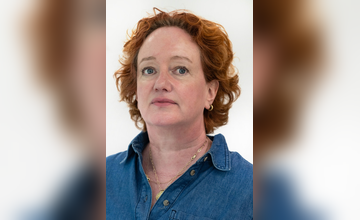
Dr Becky Faith is a Research Fellow in the Digital and Technology Research Cluster at the Institute of Development Studies at the University of Sussex, ranked first in the world for development studies and also ranked as the number one international development policy think-tank. Her research explores two key themes; the links between social and digital inequalities, and the ways in which digital platforms open and close spaces for the achievement of gender justice.
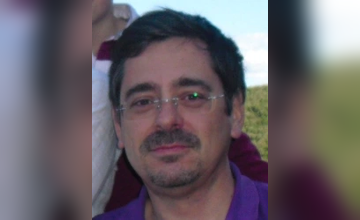
Gonzalo Génova is Associate Professor at the Computer Science and Engineering Department of the Carlos III University of Madrid. He has an MS degree in Telecommunications Engineering, an MS degree in Philosophy and a PhD in Computer Science and Engineering. His main lines of research and teaching, which reflect his strong interdisciplinary character, focus on modeling and modeling languages in software engineering and requirements engineering, as well as the philosophical foundations of information systems, artificial intelligence and ethics for engineers. As a popularizer he writes in Spanish the blog “Of machines and intentions - Reflections on technology, science and society
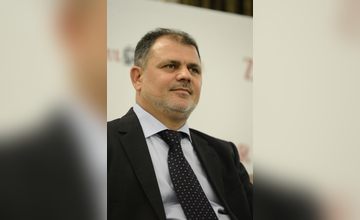
Ion Dogeanu is a Top C-Level 20+ manager, from 2007 acting as Sustainable development evangelist from the leading position of the Energy Agency in Bucharest Romania. With extensive experience as EU project manager and Climate Pact Ambassador, Ion has experience as a developer of ITC tools, Data Protection Officer, energy and climate policy analyst and stakeholders’ mobilization. He knows verry well a broad range of industries and feels verry comfortable advocating for sustainable public policies at local, national and European level. In the last 15-year Ion has played various roles: energy manager, project and financial EU projects manager, EU project evaluator expert, ITC security manager, DPO’s, climate adaptation expert, and sustainable development advocate and European Policy expert as member of various EU and national working groups.
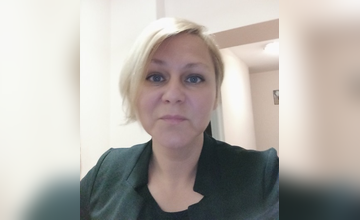
Dr. Irina Velicu is a political scientist working on socio-environmental conflicts in Europe, particularly post-socialist countries, environmental justice, social transformation and aesthetic politics. She holds a PhD in Political Science from the University of Hawaii (USA) and an MA in International Studies from the University of Warwick (UK). Dr. Velicu has been a researcher at the Center for Social Studies -University of Coimbra since 2014 where she coordinated the JustFood FCT-funded project (2018-2022), expanding her work on environmental and food justice in Europe by focusing on alternative food networks in Romania and Portugal. She is currently a co-coordinator of the Horizon project ´GreenPaths: European Knowledge Hub On Just Transition Pathways´ and of the PNRR project ´Doing Environmental Justice´. She worked as a Marie Curie Experienced Researcher within the ENTITLE European Network of Political Ecology at the Institute for Environmental Science and Technology-Universitat Autonoma de Barcelona (2013-2014), where she taught and co-supervised students enrolled in the MA on Political Ecology. Her recent publications can be found in Environmental Politics, Ecological Economics, Antipode, Theory, Culture and Society, Globalizations, Journal of Rural Studies, Geoforum, New Political Science.
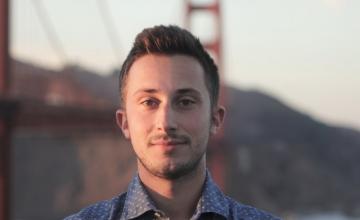
Alessandro Giordano is a Scientific Officer at the European Commission’s Joint Research Centre (JRC) in Seville, Spain, where he contributes to the organisation’s goal of providing independent, evidence-based knowledge and science to support and shape EU policymaking. He holds a dual PhD in Engineering and Public Policy from Carnegie Mellon University and the University of Lisbon, a MSc in the same field from Carnegie Mellon University and a MBA in International Business and Economics from the University of Pavia. His academic and professional research has primarily explored transport policies and technologies, through the lens of socio-economic and environmental sustainability. In his current role at the JRC, he leads initiatives on measuring access to services and opportunities and addressing transport poverty. Within the “Economics of Climate Change, Energy and Transport” Unit of Directorate Energy, Mobility and Climate, he and his team are responsible for the development of transport network models and accessibility indicators that are instrumental to promote and support policies enhancing social inclusion across Europe.
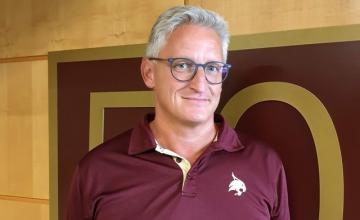
Prof. Dr. Bernhard Kölmel has held the Chair of Global Process Management at the University of Pforzheim, Faculty of Engineering, since 2012. In addition he is the Scientific Director of the IoS³ - Institute of Smart Systems and Services, coordinating over 15 publicly funded research and innovation projects with a funding volume of more than €20 million. He also leads more than 15 privately funded projects, is a member and spiritus rector of the Design Factory Pforzheim and is responsible for quality management and international accreditation of eight study programmes.
Since 2018, Prof. Kölmel has chaired the advisory board of the Digital Transformation and the Automotive Industry Transformation Network of the state of Baden-Württemberg. Since 2022 he is the scientific coordinator of bwcon Research gGmbH.
Since 2021, Prof. Kölmel is also Chair and Full Professor of Strategic Technology Management at the International School of Management in Paris and New York.
He is CEO of the Steinbeis Transfer Unit for Enterprise Information Management and Senior Advisor at the High-Tech Business Agency CyberForum and actively supports transfer and transformation. From 2001 to 2011, he was Vice President of Strategy, Innovation and Business Design at CAS Software AG and CAS Group. From 1993 to 2000, he was head of the Business Process Engineering and Management department at the Research Centre for Information Technology FZI/KIT.

ST4TE project aims to provide a comprehensive view of the drivers of the twin transition (TT), the inequalities that emerge or are widened by it, and a set of policies to build greener, more equal and more productive societies. The project specifically investigates the impact of the green and digital transitions on inequalities among individuals and territories and explore how existing inequalities affect the TT paths creating cycles of inequalities. Additionally, the project is concerned with the modelling the effects of TT policies, developing forward looking scenarios, and defining pathways for knowledge-based policymaking using tools and recommendations that will ultimately address negative socio-economic effects caused by the TT.
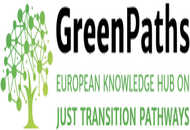
The GreenPaths project addresses the complex and multi-dimensional nature of the just transition. Drawing on an in-depth review of the most relevant research, the project aims to enable more coherent and effective policymaking to advance environmental sustainability and social well-being in Europe and beyond.
The project focuses on three main directions:
- A shift towards a sustainable model of production and consumption,
- A shift towards a social model based on equity and social cohesion, and
- A shift towards greater citizen participation and expanded social dialogue.
FITTER-EU has strong collaborative ties with the GreenPaths project due to overlapping focus areas. Moreover, some experts are actively involved in both projects - such as Irina Velicu (from The Centre for Social Studies at the University of Coimbra), who serves as a member of the FITTER External Complementary Board while also co-coordinating the GreenPaths project.

Twin Synergies addresses research and innovation disparities across Europe by enhancing skills, fostering international collaboration, and improving policy alignment between national and EU systems. The project supports 'Widening Countries' in building human capital, adopting new technologies, and engaging more effectively with EU funding programs. By strengthening capacities and connections, Twin Synergies aims to enable these regions to participate in the green and digital transitions, promoting sustainable and inclusive growth.

Genesys explores how the transition to clean energy intersects with gender and social inequalities, examining both technical and social dimensions. The project collects and analyses data on participation, access, and decision-making in energy systems to identify barriers and opportunities for under-represented groups. By highlighting these disparities, Genesys aims to guide energy policies and innovations toward a transition that is fair, inclusive, and ensures equal opportunities for everyone to engage with and benefit from the evolving energy landscape. https://zenodo.org/communities/genesys/records?q=&l=list&p=1&s=10&sort=newest

WISE (Women in Solidarity for Energy) focuses on reducing energy vulnerability among 'single' women, including single mothers, elderly women, migrants and students. It raises public awareness of why such women are disproportionately affected. In turn, it hosts local events to boost women's understanding of energy and their energy rights and to co-design solutions that meet their specific needs within a fair and inclusive energy transition. Critically, WISE provides access to practical resources such as the Right to Energy Toolkit (available in 19 languages) and materials to help others join the energy solidarity movement.
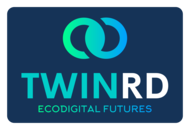
TWINRD (Macroeconomic Modelling of R&D for the Twin Transition) aims to strengthen Europe’s macroeconomic modelling capacity to support the intertwined green and digital transition. Building on established models such as GEM-E3 and NEMESIS, the project introduces new data, technology classifications and explicit representations of R&I policies to more accurately reflect green and digital innovation dynamics. Over its three-year duration, a consortium of four research institutes and SMEs with strong expertise in economic modelling and the R&I ecosystem will engage stakeholders in structured dialogues to co-design how twin transition technologies (green and digital) are integrated into enhanced macroeconomic models, co-develop transition scenarios and deliver practical R&I policy recommendations. The project will produce open-source models, datasets and policy-relevant analyses that provide transparent tools to assess socio-economic and environmental impacts of R&I policies and support evidence-based decision-making for a sustainable, digital and inclusive future.

Renpower examines how residential energy renovation can be made simpler, fairer, and more accessible for homeowners, combining technical solutions with citizen-centred services. The project designs and tests one-stop-shop renovation models that guide households through planning, financing, and implementation, removing practical and informational barriers. By piloting these services in different European contexts and sharing a replicable framework, Renpower aims to reduce energy consumption, improve comfort, and ensure the clean energy transition works for people who are often left out of complex renovation processes.
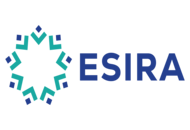
The ESIRA project is formed with the vision that empowering the socio-economic position of rural communities is crucial for sustainable economic development that respects and integrates diverse social structures and the practical needs of marginalized groups. It is focused on implementing innovative socio-economic initiatives, with a focus on developing local social networks in rural communities and improving the economic situation of marginalized groups. The ESIRA project involves mapping marginalized groups in rural areas and implementing innovative initiatives to strengthen their economic and social status. Local initiatives aim to reduce the unemployment rate and the risk of poverty among individuals in marginalized groups, while also increasing their participation in the labor market.
